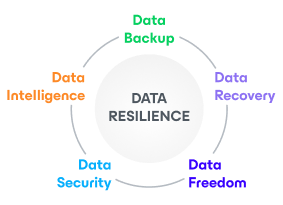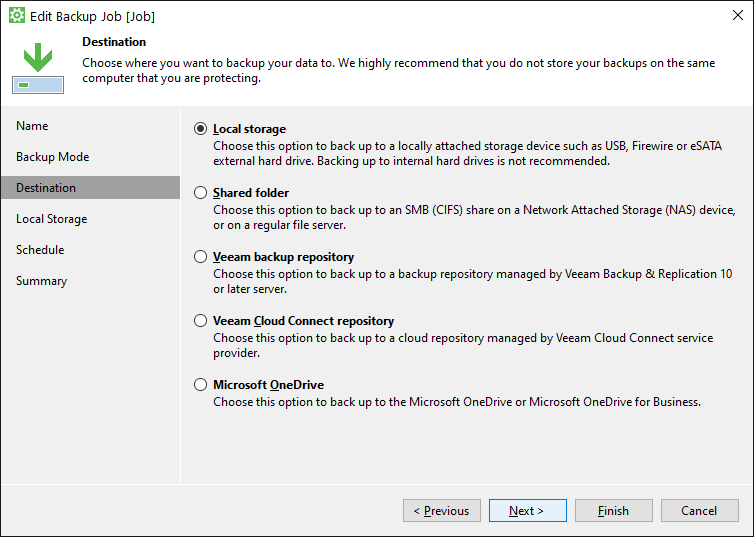I’m generally a work-in-the-office type of person, however, if you’re working from home, it may be time to assess the need for endpoint backups. I’m convinced it is important, and I’ll explain why in this blog.
The reality is when working arrangements change, data creating and sharing change too. This is rather important when you consider we’re used to working in the office with presumably more direct access to central resources and peers. If this changes, we should think about backing things up.
It’s ironic, but in 2014 when we first launched the product now called “Veeam Agent for Microsoft Windows,” we called it “Veeam Endpoint Backup Free.” Since that time, a number of amazing things have happened. We added centralized management, a server-grade CBT driver (probably the coolest thing you didn’t know about!), cluster support, and more. The same goes for Veeam Agent for Linux, which received a number of improvements and enhancements to keep physical systems backed up and recovery options ready.
Free Windows laptop backup
But here we are in 2020, and did you know that both Veeam Agent for Microsoft Windows and Veeam Agent for Linux are still available as a free edition in standalone mode? This is very powerful if you want to backup laptops, PCs or Windows tablets at home. If you have quite a few systems at home, you may want to put in Veeam Community Edition which will have central management and support for other types of workloads (this is free also!). You can also back up server operating systems as well. I’m using it to backup my Windows laptop to a removable USB drive:
With Veeam Agent for Microsoft Windows, there are a number of different targets backups can go. I use a removable USB Drive; which would be “Local Storage” but you can also put backups on a NAS device (a shared folder from a storage system — or a path on another computer), Veeam infrastructure components such as a repository or a Cloud Connect target, or to Microsoft OneDrive.
One safeguard I use when backing up my laptop is to eject the backup media once the backup is completed. For my laptop and the USB drive that has the backup, this is a simple way to immediately put the backup offline to prevent it from being touched by ransomware. This option is shown below:
Free Linux laptop backup
Aside from Windows operating systems, Linux systems can also enjoy protection with a Veeam Agent for free. The Veeam Agent for Linux protects in the same manner: an image-based backup that can provide bare-metal recovery and more. The image below shows the Linux Agent configuration:
Windows and Linux work-from-home users rejoice, you have a way to back up your endpoints for free. I believe our products will deliver the simplicity, reliability and flexibility to give you the confidence to restore if needed. You can get started right away with the free editions of both Veeam Agent for Microsoft Windows and Veeam Agent for Linux. I mentioned Community Edition earlier, and the main difference between that and the standalone agents is management, support for VM backups and an easy way to deploy the agents. Therefore, if you have a few systems at home and want the centralized management of your backups, look no further than Veeam Backup & Replication Community Edition or a free trial of the fully functional editions.




